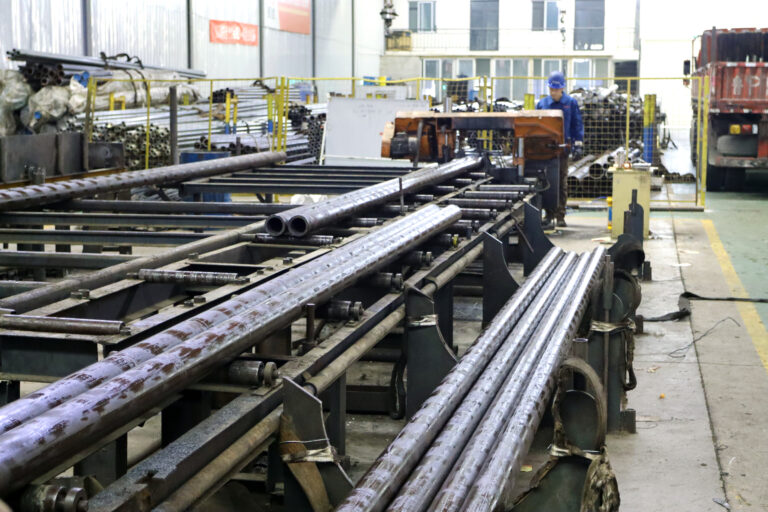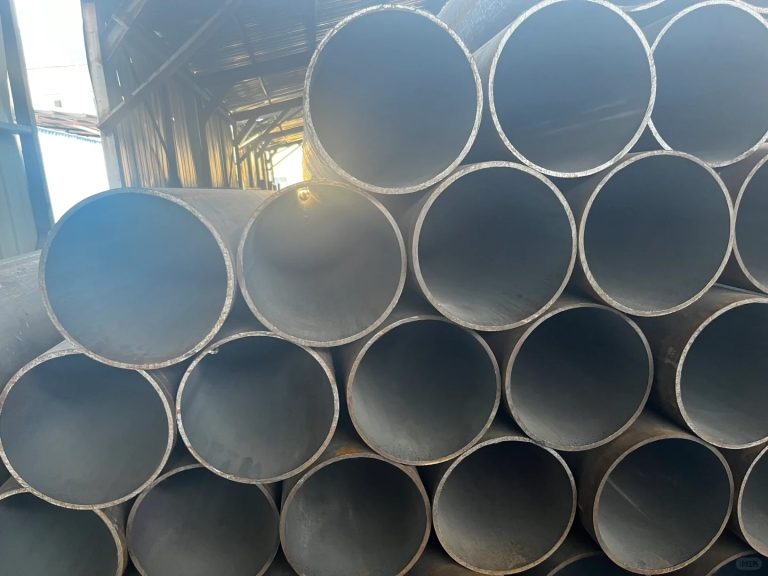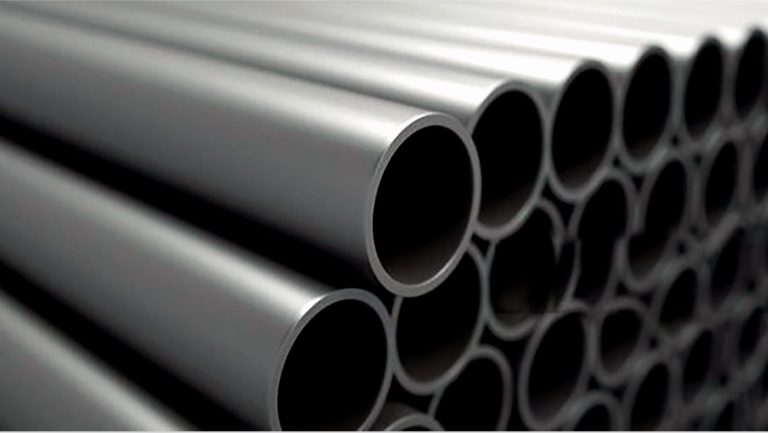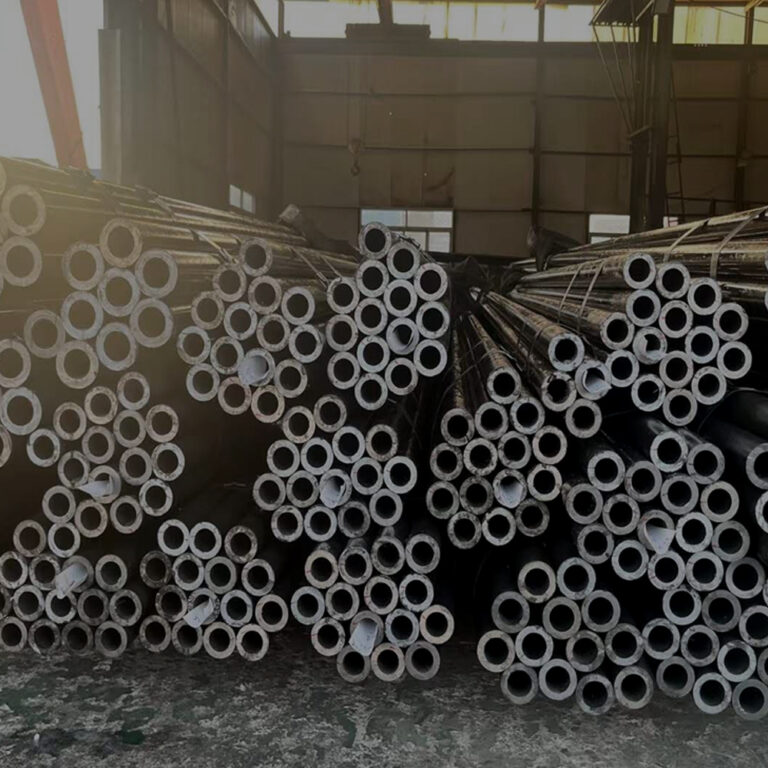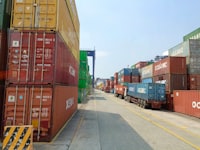Seamless Steel Pipe Supplier from China

Two Sessions Face to Face | “The global market does not lack a demand for materials, but rather a demand for high – quality materials.” – Deputy Zhu Xiaokun on the export of high – end products.
The 2024 financial report of Tiangong International shows that revenue from overseas markets accounted for over 40%. “In 2024, Tiangong International’s steel exports did not decline, indicating that the global market does not lack demand for materials but needs high-quality ones. Therefore, every steel mill has a responsibility to research niche industries and develop what the market needs,” Zhu Xiaokun, National People’s Congress deputy and Chairman of Tiangong International’s Board of Directors, stated in an exclusive interview with China Metallurgical News on March 9.
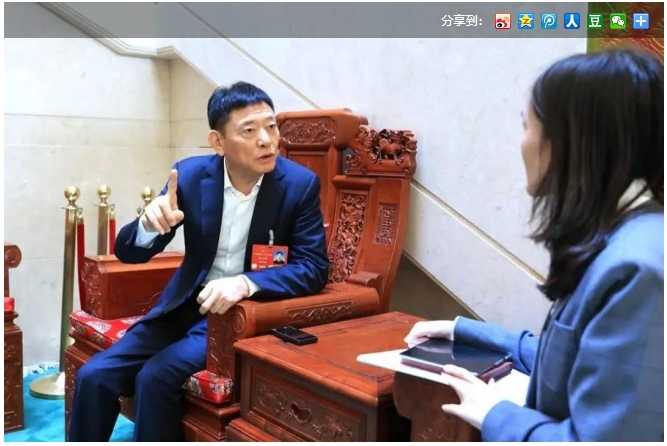
On the afternoon of March 5, General Secretary Xi Jinping emphasized during his deliberation with the Jiangsu delegation at the third session of the 14th National People’s Congress that Jiangsu should grasp the key points for taking the lead and take the forefront in promoting the integration of scientific and technological innovation with industrial innovation. In Zhu Xiaokun’s view, this statement requires enterprises to truly research, develop, and innovate facing the market, transforming scientific research achievements into what downstream customers need and into real productivity.
Zhu Xiaokun also called for the state to provide preferential policies such as export tax rebates for high-end products developed through significant R&D efforts, to accelerate their integration into the international market.
On July 28, 2021, the Ministry of Finance and the State Tax Administration issued a notice canceling export tax rebates for steel products. Since then, all steel products, including a large number of special steels, have no longer enjoyed export tax rebate policies. “This ‘one-size-fits-all’ adjustment of tax rebates did not consider differences in technical content, market demand, production processes, and impacts on the ‘double carbon’ goals among different steel products, dampening enterprises’ enthusiasm for developing high-end special steel products,” Zhu Xiaokun said.
For example, high-value-added special steel products such as high-alloy high-speed steel and alloy powder steel were also included in the scope of export tax rebate cancellation. “This has weakened enterprises’ R&D motivation and market competitiveness in high-end product fields,” Zhu noted. He added that although the U.S. has imposed tariffs on China’s steel industry, products with rare metal contents (such as tungsten, molybdenum, vanadium) exceeding 7% are exempted—a practice worth studying.
“Resources should be allocated to critical areas. It was correct for the state to cancel export tax rebates for ordinary steel, but high-end materials should receive more support. First, encourage R&D of high-end materials for export substitution, so that China’s steel products in niche fields can truly support high-end manufacturing; second, propose restoring export tax rebates for high-end steel to enhance the international competitiveness of China’s high-end materials,” he emphasized.
It is reported that on January 23, Jiangsu Tiangong received a certificate from the North American Die Casting Association (NADCA) confirming that its TGE23 series products passed NADCA certification. Tiangong International became the first Chinese enterprise in the new mold materials industry to receive this honor, demonstrating that China’s new mold materials meet the requirements for large integrated die-casting mold materials and can replace imports. “This process took more than two years. Although high-end product R&D involves high costs and long investment periods, we are willing to pay this price to promote the strengthening and optimization of China’s high-end materials in niche industries,” Zhu Xiaokun said.
To further promote innovation in private enterprises, especially in high-end steel products, Zhu Xiaokun proposed: “Optimize export tax rebate policies to distinguish between rough (rough processing) and fine (fine processing) products, and provide more lenient policy support for high-end steel products that directly or indirectly advance the ‘double carbon’ goals. In particular, high-end special steel products such as high-speed tool steel, mold steel, and alloy powder steel—fundamental materials for industries like machinery manufacturing, aerospace, and automotive—should continue to receive export tax rebate support.”
Currently, some high-end special steels in China still rely on imports. “Greater efforts should be made to encourage ‘open bidding’ for key projects and support enterprises in independent R&D and expanding import substitution,” Zhu Xiaokun said. He suggested that the government increase fiscal support and tax incentives to enable private enterprises to carry out breakthrough research in frontier fields such as artificial intelligence, new materials, and green manufacturing. At the same time, he proposed prioritizing private enterprises’ participation in national key scientific and technological projects, such as breaking through key technologies like powder metallurgy, to improve the self-sufficiency rate of domestic high-end steel.
“The private enterprise symposium held on February 17 and this year’s Government Work Report have both sent many signals conducive to the development of the private economy. As a representative from a private enterprise, I believe the coming period will be a time for private enterprises to showcase their ambitions and capabilities. I will set an example, act as a pioneer, and lead the way,” Zhu Xiaokun told the China Metallurgical News reporter.


